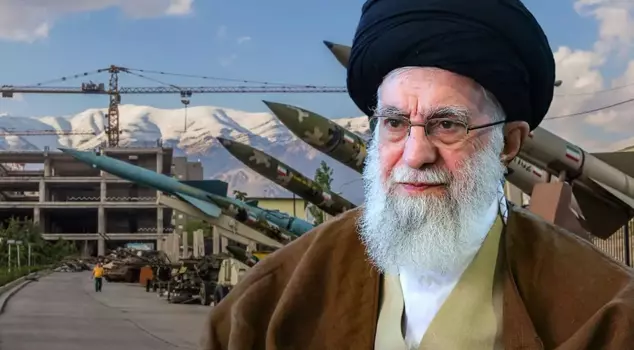
28.08.2025 21:12
The UK, France, and Germany have officially requested the UN to reimpose sanctions on Iran under the 2015 nuclear agreement. The 'snapback' mechanism has initiated a 30-day process.
The UK, France, and Germany have applied to the United Nations (UN) for the reimposition of sanctions against Iran that were lifted under the 2015 nuclear agreement.
The E3 countries, consisting of the UK, France, and Germany, sent a letter to the UN Security Council notifying them officially after warning that they would take action if Iran did not show willingness for a diplomatic solution regarding its nuclear program by the end of August. This initiated a 30-day process that triggers the "snapback" mechanism for the reimposition of sanctions against Iran.
30-DAY PROCESS FOR SANCTIONS HAS BEGUN
Under the mechanism, if the UN Security Council does not make a new decision within 30 days to prevent the reimposition of sanctions, the sanctions will automatically come back into effect.
Considering that countries like the US, the UK, and France are expected to veto such an initiative, it is not anticipated that the UN Security Council will make a decision to keep the sanctions against Iran suspended in the next 30 days.
US HAPPY WITH THE DECISION
US Secretary of State Marco Rubio stated that they welcomed the E3 countries' move to reinstate sanctions against Iran. Rubio said, "These European allies have clearly demonstrated Iran's significant and ongoing non-compliance with its nuclear commitments, creating a strong basis for the reintroduction of sanctions."
Rubio added, "The E3 countries were in a position to activate the 'snapback' mechanism at any moment since 2019, but instead, they chose the path of intense contact and engagement first. By doing this, they preferred to offer Iran a diplomatic way out of the strategy of escalating nuclear tensions."
CALL FROM THE US TO IRAN
Rubio emphasized that the US would work with the E3 countries France, Germany, and the UK, as well as other UN Security Council members, to reapply sanctions against Iran, while also expressing that the US would be open to direct engagement with Tehran to find a peaceful and lasting solution to the nuclear issue. Rubio stated, "The snapback mechanism does not contradict the fact that we are sincerely ready for diplomacy; rather, it strengthens it. I urge Iranian leaders to take immediate steps to ensure that their country never possesses nuclear weapons, to walk the path of peace, and thereby advance the welfare of the Iranian people."
NUCLEAR NEGOTIATION PROCESS
The sanctions that were in place before the 2015 agreement, supported by the UN, included asset freezes, a conventional arms embargo, travel bans, missile restrictions, and prohibitions on sensitive nuclear activities.
The E3 countries had proposed delaying the "snapback" process during discussions in July, but they set conditions such as Iran returning to nuclear negotiations with the US and allowing UN inspectors access to Iranian facilities. Nuclear negotiations between the US and Iran could not be resumed after the US bombed Iran's nuclear facilities in June and Iran began to obstruct access for UN-supported inspectors to the facilities.
Under the agreement reached in 2015 between Iran and the US, UK, France, Germany, China, and the EU, the restrictions imposed on Iran's nuclear program were lifted in exchange for the lifting of years of crippling economic sanctions against Iran. However, the agreement was undermined when US President Trump withdrew from the agreement in 2018 during his first term and reinstated the sanctions under the nuclear agreement. In response to this step, Iran accelerated its nuclear activities, which led to a resurgence of the crisis.
The "snapback" provision included in the 2015 nuclear agreement allows one of the parties to inform the UN Security Council if they believe that Iran is not significantly fulfilling its nuclear commitments and makes it possible to reapply sanctions. While Western countries argue that they are not convinced that Iran's nuclear program is peaceful, Iran claims that it is not pursuing the development of nuclear weapons and that the program is entirely for civilian purposes.
Iran argues that there is no legitimate reason for the reimposition of UN sanctions and states that the West has not adhered to the agreement following the US's withdrawal. Iran has also threatened to withdraw from the Treaty on the Non-Proliferation of Nuclear Weapons if the mechanism for the reapplication of sanctions is activated.